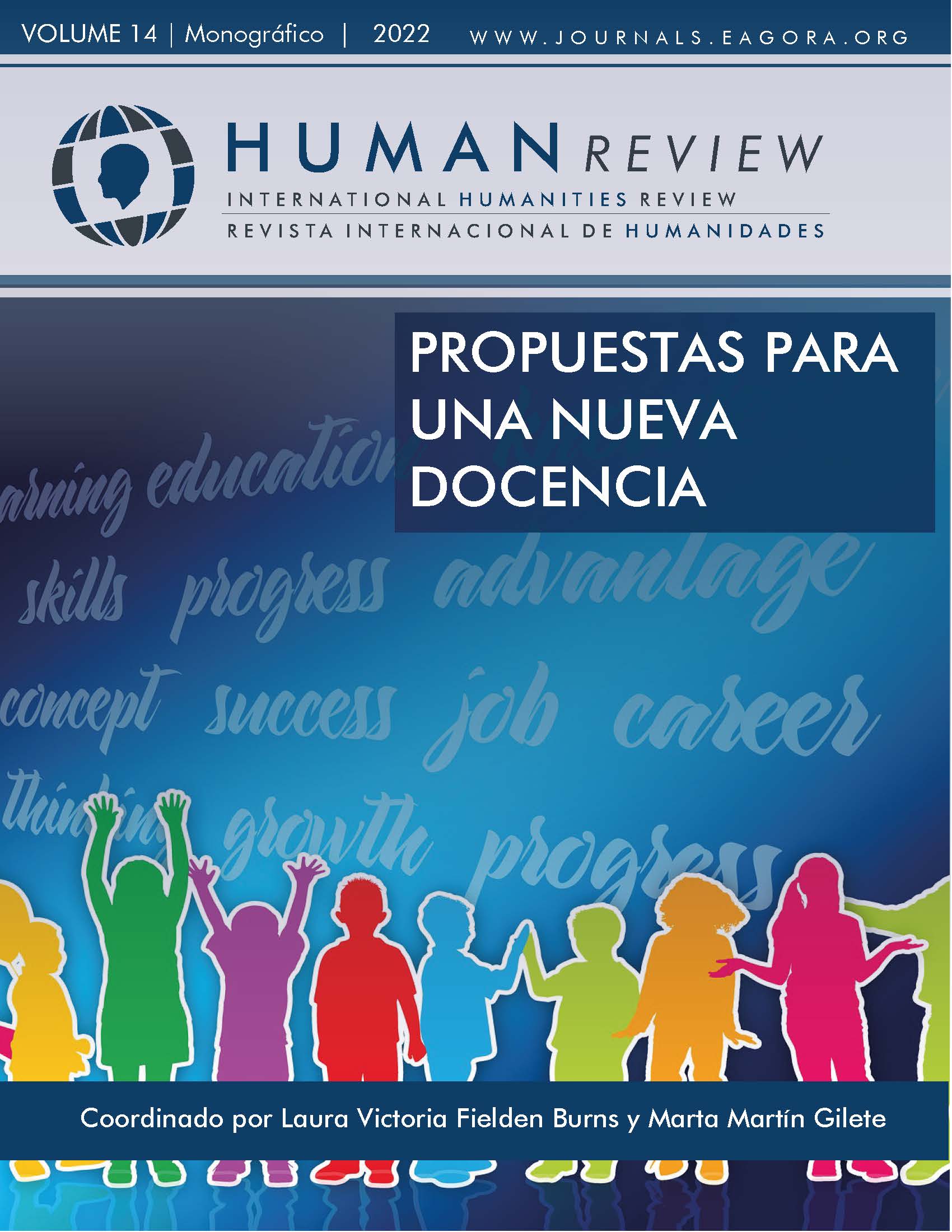Education outside the classroom
Hybrid teaching-learning methods
DOI:
https://doi.org/10.37467/revhuman.v11.4171Keywords:
Educational Technology, Digital Lattice, Educational Modality, Postpandemic Education, Hybrid Education, Digital Mediation, COVID-19Abstract
Digitalization in education, accelerated by the recent COVID-19 confinement, shows that a high proportion of learning is outside the classroom and that a post-pandemic return to a previous state in the teaching-learning process is not possible. Thus, being the objective to document how the advance of educational technology changed teaching, it is proposed: (i) to take the construct of educational modalities by curriculum to a hybrid teaching-learning process: with digital mediation and teacher mediation; (ii) and for this, the participants will have to assume responsibilities in the conduction of the new educational reality.
References
Acuña, M. (26 de diciembre de 2021). Evaluando calidad en los Recursos Educativos Digitales. https://tinyurl.com/yz72d3tn
Avendaño, G., y Meneses, C. (2018, 1 de enero). Desentramando la Industria 4.0, una oportunidad para México. PT México. https://tinyurl.com/284kutzf
Bohm, D. (2008). La Totalidad y el orden implicado. Kairós.
Byung-Chul, H. (2014). En el enjambre. Herder.
Castells, M. (1997). La era de la Información: Economía, sociedad y cultura. Alianza.
Castells, M. (2006). La sociedad red: Una visión global. Alianza.
Coleman, H. (2021, junio 21). ¿Cómo la pandemia por COVID-19 cambió la industria de la educación para siempre? Tecnológico de Monterrey. https://tinyurl.com/zyzj2zyh
De Seta, L. (2017, marzo 22). 5 distinciones de la mente emocional. Dos Ideas. Personas y software. https://tinyurl.com/3st7p5ea
Galvis Panqueva, A. H. (2018). Oportunidades y retos de la modalidad híbrida en educación superior. Conference: Conferencia Internacional de Ambientes Virtuales de Aprendizaje Adaptativos y Accesibles, CAVA. Medellín: Universidad Pontificia Bolivariana.
García Allen, J. (2015, 21 de junio). Síndrome FOMO: sentir que la vida de los demás es más interesante. https Psicología y Mente. ://psicologiaymente.com/clinica/sindrome-fomo
INEGI. (2021). Comunicado de prensa núm. 352/21. INEGI. https://tinyurl.com/2p8vkbrd
INEGI. (2021). Encuesta para la Medición del Impacto COVID-19 en la Educación. INEGI. https://www.inegi.org.mx/investigacion/ecovided/2020/
McLuhan, M. y Carpenter, E. (Eds.) (1974). El Aula sin Muros. Laila.
McLuhan, M. y Fiore, Q. (1969). El Medio es el mensaje. Paidós.
McLuhan, M. y Powers B. R. (2020). La aldea global: Transformaciones en la vida y los medios de comunicación mundiales en el siglo XXI. Gedisa Editorial.
Matallana K., O. (2010). Las megauniversidades en el mundo. Revista de Investigaciones UNAD, 9(3). DOI https://doi.org/10.22490/25391887.725
Ruiz S., A. (2021, 5 de marzo). El conocimiento de uno mismo „conferencia“. Instituto de Semiología de la Vida Cotidiana. México. https://tinyurl.com/mrx8pvmb
Saavedra Jaramillo de Sedamano, M. J., Saavedra Jaramillo, C. C., Medina Sotelo, C., Sedamano Ballesteros, M. A., & Saavedra Jaramillo, D. I. (2022). Aulas híbridas: la nueva normalidad de la educación superior. Revista de Investigación Apuntes Universitarios, 162-178. doi:https://doi.org/10.17162/au.v12i2.1044
Scolari, C. (2022, abril 13). YouTube, una forma alternativa de educación para los adolescentes. El Mundo. https://tinyurl.com/yy2fr586
Torres León, M. y López Enríquez, C. (2016). Modalidades, sistemas y opciones educativas en México, ¿es posible un acuerdo de bases conceptuales? En Zubieta G. J. y Claudio R. V. (Coords.) La Educación a Distancia en México. Una nueva realidad universitaria (pp. 17-32). UNAM
Torres Martín, J. M. (2016). Aspectos básicos para una enseñanza e-learning de calidad en la Educación Superior. En 3C TIC: Cuadernos de desarrollo aplicados a las TIC, 8-32. doi:http://dx.doi.org/10.17993/3ctic.2016.53.8-32/
Triyason, T., Tassanaviboon, A., & Kanthamanon, P. (julio de 2020). Hybrid Classroom: Designing for the New Normal after COVID-19 Pandemic. ACM International Conference Proceeding Series., 1-8. doi:https://doi.org/10.1145/3406601.3406635
UNESCO. (1998a). Aprendizaje abierto y a distancia. UNED. https://tinyurl.com/mr2eppky
UNESCO. (1998b). Declaración mundial sobre la Educación Superior (ES) en el siglo XXI: Visión y acción y marco de acción prioritaria para el cambio y el desarrollo de la Educación Superior. UNESCO. https://tinyurl.com/2p8svvsm
UNESCO. (2005). Hacia las sociedades del conocimiento. Informe mundial UNESCO. https://tinyurl.com/yckj4sfr
Downloads
Published
How to Cite
Issue
Section
License
Those authors who publish in this journal accept the following terms:
- Authors will keep the moral right of the work and they will transfer the commercial rights.
- After 1 year from publication, the work shall thereafter be open access online on our website, but will retain copyright.
- In the event that the authors wish to assign an Creative Commons (CC) license, they may request it by writing to publishing@eagora.org









